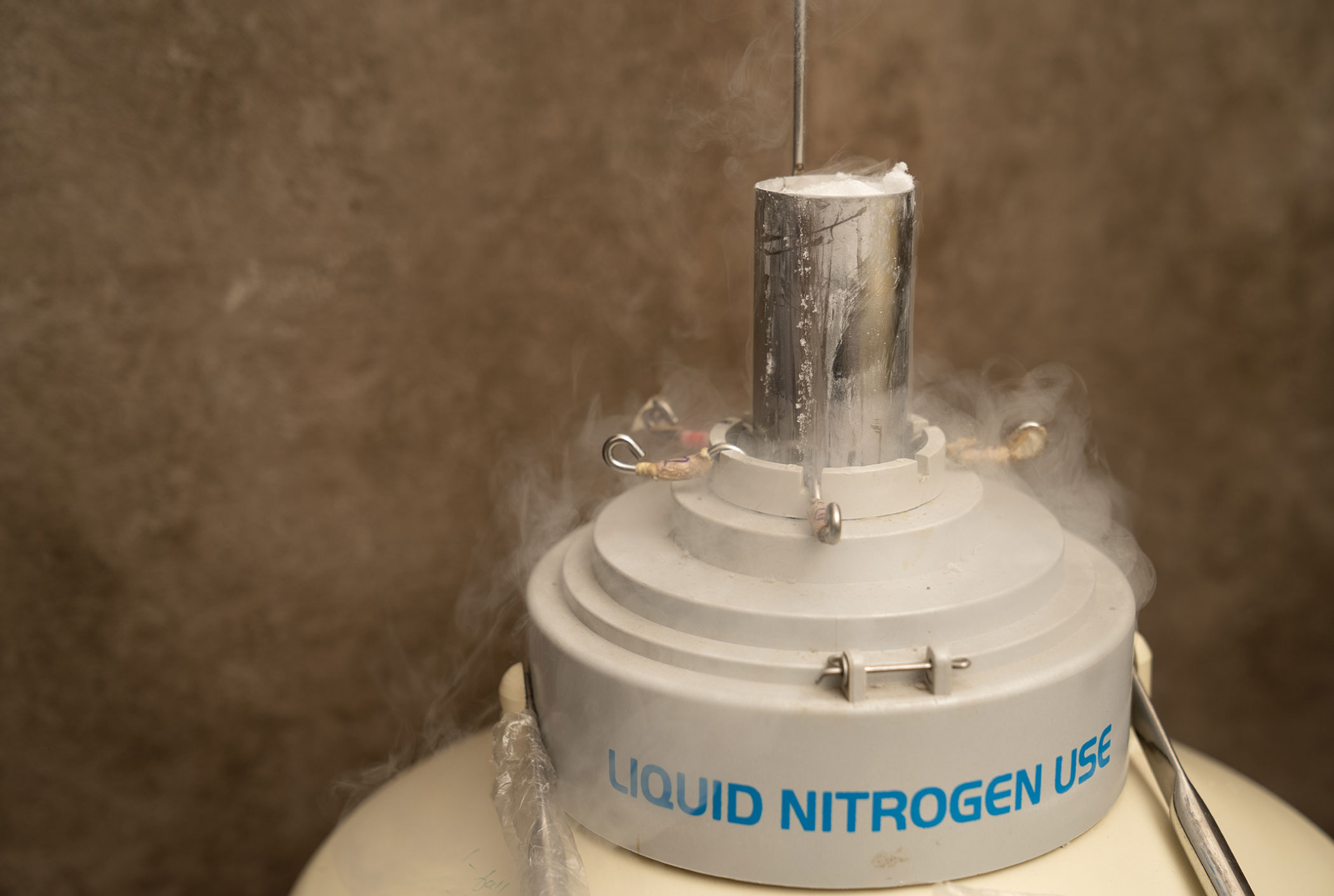Sperm freezing
Sperm freezing or cryopreservation is one of the most viable options for infertile men to have a biological child. For over six decades, sperm freezing has been considered an alternative to infertility treatment in males. The sperm extracted from men is kept frozen at an environment similar to that of the sperm’s natural location, thereby maintaining its quality the best way. Not only is it simpler, but sperm freezing is an economical way of IVF treatment too.
What is sperm freezing?
The sperm is stored in liquid nitrogen at -196°C at a sperm bank for use in IVF and IUI treatments, artificial insemination and surrogacy. The standard time for storing a sperm is 10 years, but the storage time can be extended up to 55 years.
Who opts for sperm banking?
-
Men with low sperm counts or low motility
-
Men who suffer from permanent sterilisation or genetic damage
-
Fertile men who has a family history of cancer
-
Those who opt for assisted reproductive technologies to have kids
-
Those who plan for vasectomy
-
Gay couples
-
Sperm donors
-
Risk of injury or death
Procedure before cryopreservation
-
The person should go through careful screening for HIV, HBV, HCV, etc. to avoid chances of infection.
-
A written consent on sperm usage in case of your demise. If it can be used by another person, used for research purposes or can be donated to someone else.
The process
Semen obtained by masturbation is brought into the laboratory within an hour. At the lab, the quantity and quality of the sperm in the semen is analysed. The sample is then divided into parts and transferred into several vials which are stored under freezing conditions.
The number of vials depends upon the quantity of semen sample and the number of mobile sperm in each millilitre of the semen. The freezing process requires three hours. The number and motility of the sperm is examined after the vial is thawed and sperm is defrosted.
The highest number of sperms are found in ejaculates at least 48 hours apart. Therefore, three separate ejaculates are preferred for sperm banking process.
Sperm quality: Influential factors
Each patient’s specimens differ due to various factors, but sperm quality is dependant of several factors, such as:
-
Age of the male
-
Number of kids he has had
-
Semen quality
-
Fertility status
-
Overall health
Risks of sperm freezing
The major risk is the failure of sperm cells to maintain viability and fertility. However, before the treatment, the motility and mobility of the frozen sperm is analysed to ensure high rate of conception. The couples also undergo counselling with infertility specialist to be aware of the technique and its outcome before attempting it.


















